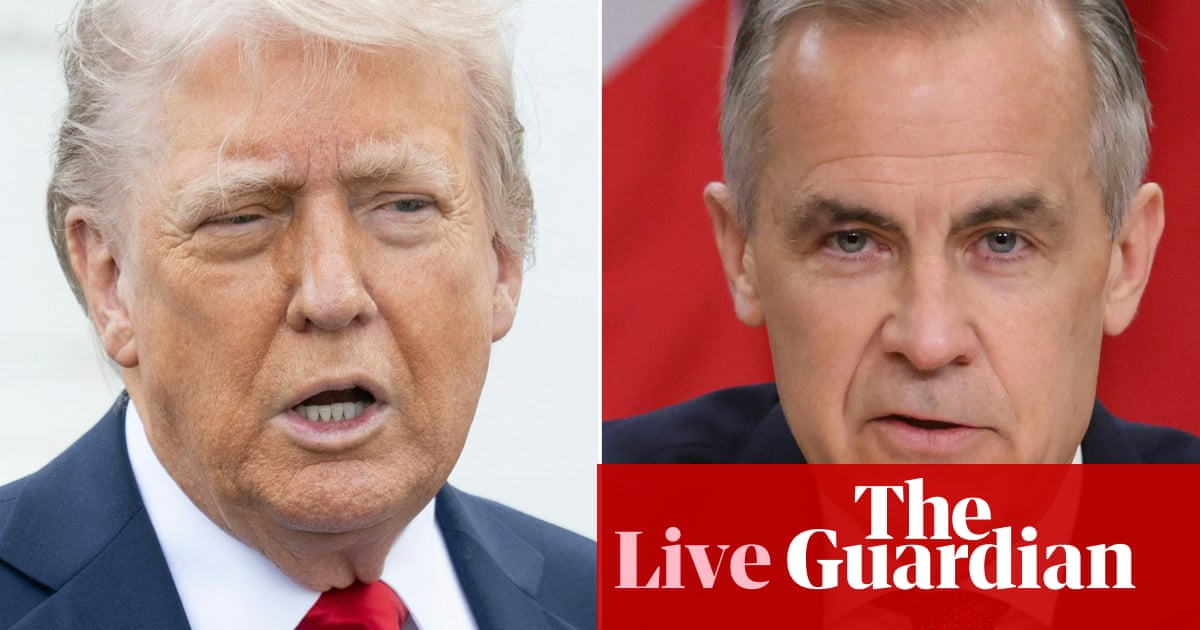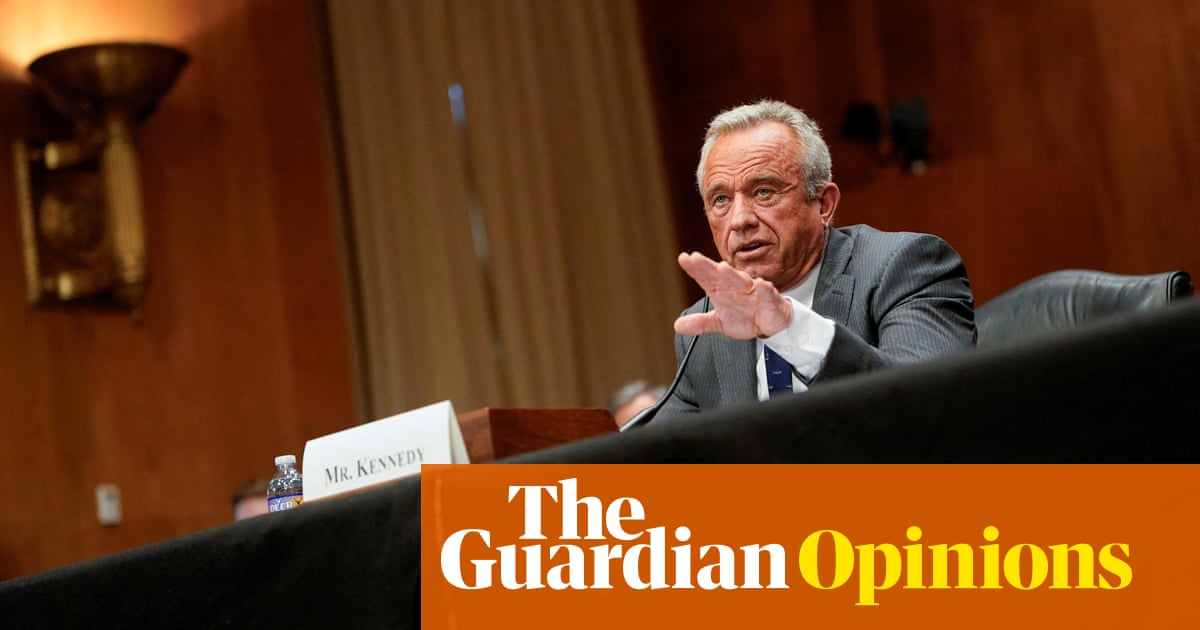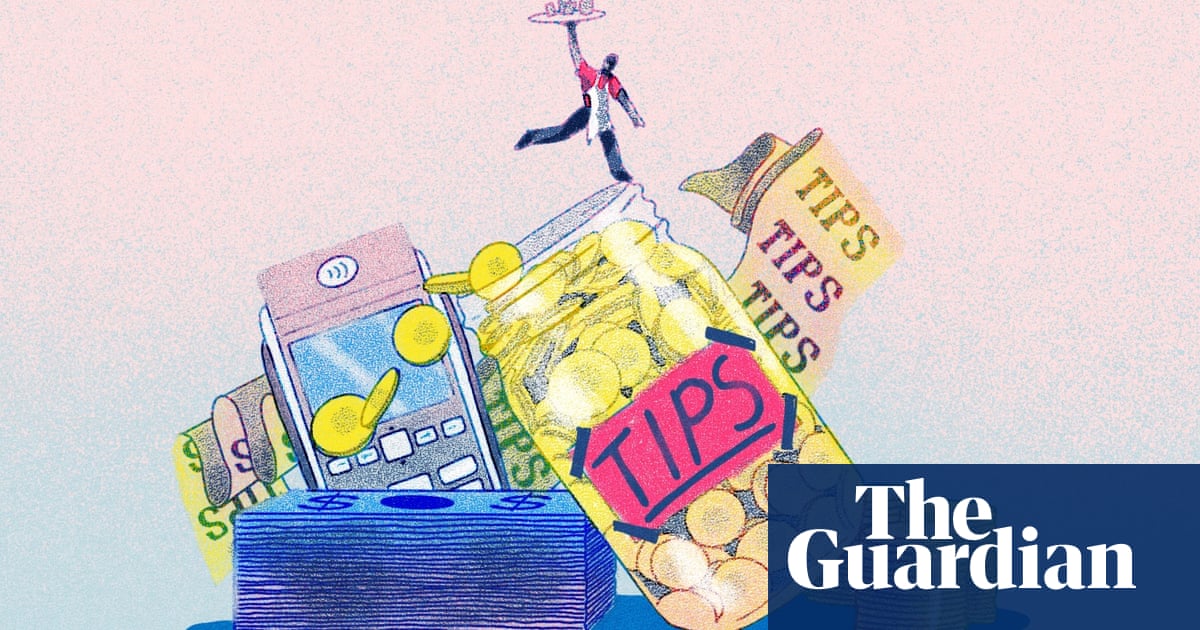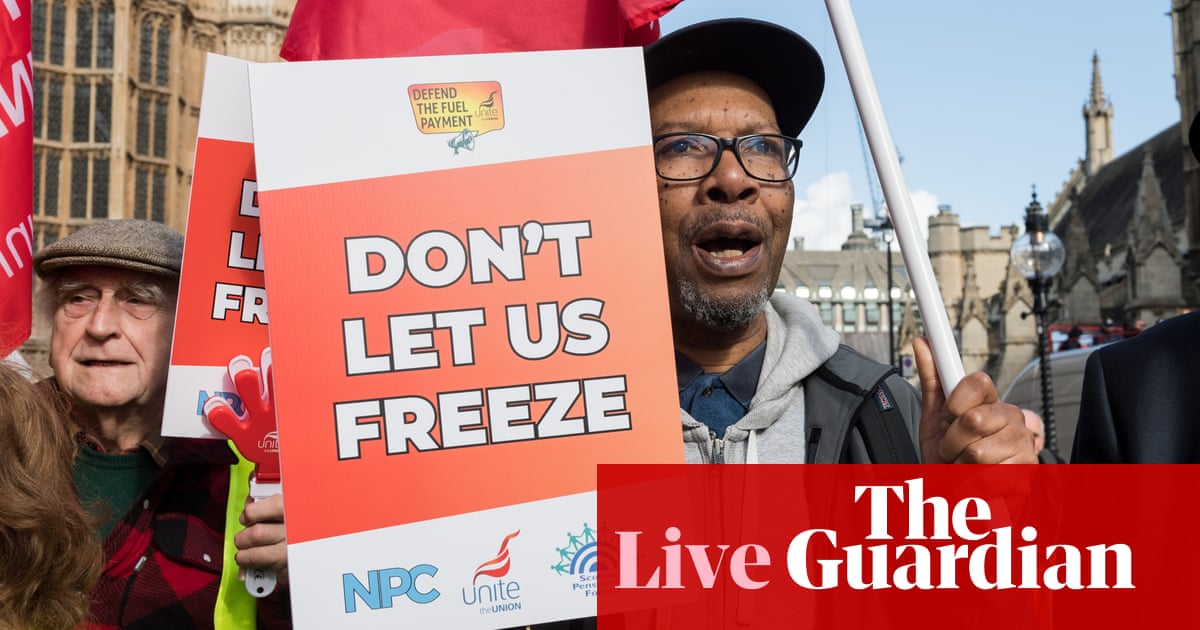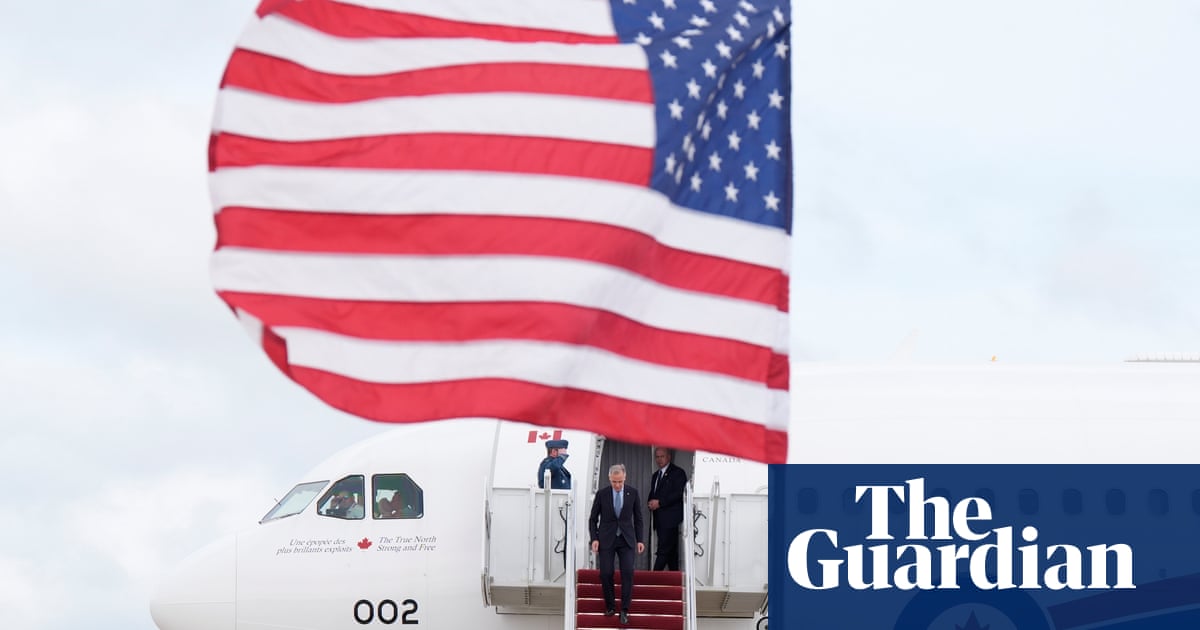China's services growth hits seven-month low as tariffs bite
Good morning, and welcome to our rolling coverage of business, the financial markets and the world economy.
Investors will be scrutinising the latest healthchecks on companies across the world today, for signs that the US-China trade war is hurting the global economy.
And… the latest purchasing manager’s survey data has shown that China’s service sector activity growth has hit a seven-month low, as business confidence fell to the lowest since early in the Covid-19 pandemic.
The Caixin China General Services Business Activity Index, released this morning, fell to 50.7 in April, down from 51.9 in March. That shows the slowest rise in activity since last September – but still above the 50-point mark that signals stagnation.
China’s service sector firms reported a slowdown in new business, while business sentiment fell to the lowest level seen since February 2020, while companies continued to cut staffing levels.
The report says:
The slowdown in business activity growth reflected the trend seen for new business. Disruptions to goods trade amid fresh tariffs had negatively impacted some service providers in April, according to anecdotal evidence, and led to the slowest rise in overall new work for 28 months.
New export business increased only fractionally, with some firms noting improved foreign demand amid rising tourism activity.
Data yesterday showed that the US services sector’s growth picked up in April, while the prices paid by American firms for materials and services jumped, indicating that the tariffs announced by the Trump administration are fuelling inflation.
The financial markets are looking for progress in trade talks between the US and its trading partners. Yesterday, treasury secretary Scott Bessent told CNBC that he believes the U.S. is “very close to some deals.”
Bessent explained:
“As President Trump said last night on Air Force One, maybe as early as this week.”
He added that there could be “substantial progress in the coming weeks” with China; last week, Beijing signalled it was “assessing” potential trade talks with the U.S….
The agenda
-
9am BST: UK car sales data for April
-
9am BST: Eurozone services sector PMI report for April
-
9.30am BST: UK services sector PMI report for April
-
3.10pm BST: US RCM/TIPP Economic Optimism Index
Key events Show key events only Please turn on JavaScript to use this feature
DoorDash's takeover of Deliveroo agreed
The takeover of UK food-delivery platform Deliveroo by US rival DoorDash has been agreed.
The two sides have reached agreement on DoorDash’s offer of 180p in case for each Deliveroo share, made last month.
The deal values Deliveroo at £2.9bn, and is almost 30% higher than Deliveroo’s share price the day before the offer was made.
It’s less than half the value at which Deliveroo was floated on the London stock market four years ago, though.
Tony Xu, CEO and Co-founder of DoorDash, says he has “long admired” Deliveroo’s team, including CEO Will Shu (who will pocket around £170m from the shares he owns):
Like DoorDash, Deliveroo is obsessively focused on their customers - consumers, merchants, and riders. They work day in and day out to improve their consumer value proposition, bring new services to local businesses, and offer flexibility and support to riders.
These efforts and attention to detail from Will and the team have had a tremendous positive impact in the communities where Deliveroo operates.
Barbie dolls to cost more in a tariff world

American children face paying higher prices for Barbie dolls due to the Trump tariffs on imports.
Mattel, the toy manufacturing giant, revealed last night that it plan to raise prices on American toys due to tariffs, and is also looking to move some manufacturing out of China.
In its latest earning report, Mattel told shareholders it is taking “mitigating actions” to fully offset the potential incremental cost impact of tariffs on future performance.
Those measures include:
-
Accelerating diversification of its supply chain and further reducing reliance on China-sourced product,
-
Optimizing product sourcing and product mix, and
-
Where necessary, taking pricing action in its U.S. business.
Paying more for a new Barbie, or Ken, might highlight the impact of tariffs for US consumers.
Donald Trump, though, argued last weekend that “a young lady” doesn’t need 37 dolls, and might be “very happy with two or three or four or five.”..
Philips lowers profit margin guidance over trade tensions
Dutch medical-technology firm Philips has lowered its outlook for profitability this financial year, blaming the US trade war.
In its latest financial results, Philips trimmed its profitability outlook for the year, as it calculated “the assumed impact of currently announced tariffs”.
Philips now expects an estimated net tariff impact of €250m to €300m “after substantial tariff mitigations”, and has lowered its forecast for its adjusted operating earnings margin by one percentage point, to 10.8% to 11.3%.
Roy Jakobs, CEO of Royal Philips, explains:
In an uncertain macro environment that has intensified due to the potential impact of tariffs, we are focused on what we can control.
We are improving our supply chain agility, taking decisive cost actions to mitigate financial impact where possible, and ensuring we can continue to serve our customers and consumers.
Philips makes medical devices such as MRI and CT scanners, and has been using artificial intelligence (AI) to speed up results:
Ford expects $1.5bn profit hit from Trump tariffs

America’s car industry is calculating the cost of the trade wars.
Overnight, Ford Motor suspended its annual guidance, due to “tariff-related uncertainty”, and estimated new tariffs would cost it about $1.5bn (£1.1bn) of profits this financial year.
Ford CEO Jim Farley told analysts:
“It’s still too early to fully understand our competitors’ responses to these tariffs,”
“It’s clear, however, that in this new environment, automakers with the largest U.S. footprint will have a big advantage.”
Last week, Donald Trump’s 25% import tax on engines, transmissions and other key car parts came into force, a move that will push up costs for automakers.
Ford had previously predicted it would post earnings before interest and taxes of between $7bn and $8.5bn this financial year.
But with uncertainty over how the trade war will play out, Ford told investors that guidance was now suspended, explaining:
Given material near-term risks, especially the potential for industrywide supply chain disruption impacting production, the potential for future or increased tariffs in the U.S., changes in the implementation of tariffs including tariff offsets, retaliatory tariffs and other restrictions by other governments and the potential related market impacts, and finally policy uncertainties associated with tax and emissions policy, the company is suspending guidance.
China's services growth hits seven-month low as tariffs bite
Good morning, and welcome to our rolling coverage of business, the financial markets and the world economy.
Investors will be scrutinising the latest healthchecks on companies across the world today, for signs that the US-China trade war is hurting the global economy.
And… the latest purchasing manager’s survey data has shown that China’s service sector activity growth has hit a seven-month low, as business confidence fell to the lowest since early in the Covid-19 pandemic.
The Caixin China General Services Business Activity Index, released this morning, fell to 50.7 in April, down from 51.9 in March. That shows the slowest rise in activity since last September – but still above the 50-point mark that signals stagnation.
China’s service sector firms reported a slowdown in new business, while business sentiment fell to the lowest level seen since February 2020, while companies continued to cut staffing levels.
The report says:
The slowdown in business activity growth reflected the trend seen for new business. Disruptions to goods trade amid fresh tariffs had negatively impacted some service providers in April, according to anecdotal evidence, and led to the slowest rise in overall new work for 28 months.
New export business increased only fractionally, with some firms noting improved foreign demand amid rising tourism activity.
Data yesterday showed that the US services sector’s growth picked up in April, while the prices paid by American firms for materials and services jumped, indicating that the tariffs announced by the Trump administration are fuelling inflation.
The financial markets are looking for progress in trade talks between the US and its trading partners. Yesterday, treasury secretary Scott Bessent told CNBC that he believes the U.S. is “very close to some deals.”
Bessent explained:
“As President Trump said last night on Air Force One, maybe as early as this week.”
He added that there could be “substantial progress in the coming weeks” with China; last week, Beijing signalled it was “assessing” potential trade talks with the U.S….
The agenda
-
9am BST: UK car sales data for April
-
9am BST: Eurozone services sector PMI report for April
-
9.30am BST: UK services sector PMI report for April
-
3.10pm BST: US RCM/TIPP Economic Optimism Index

.png) 5 hours ago
4
5 hours ago
4
